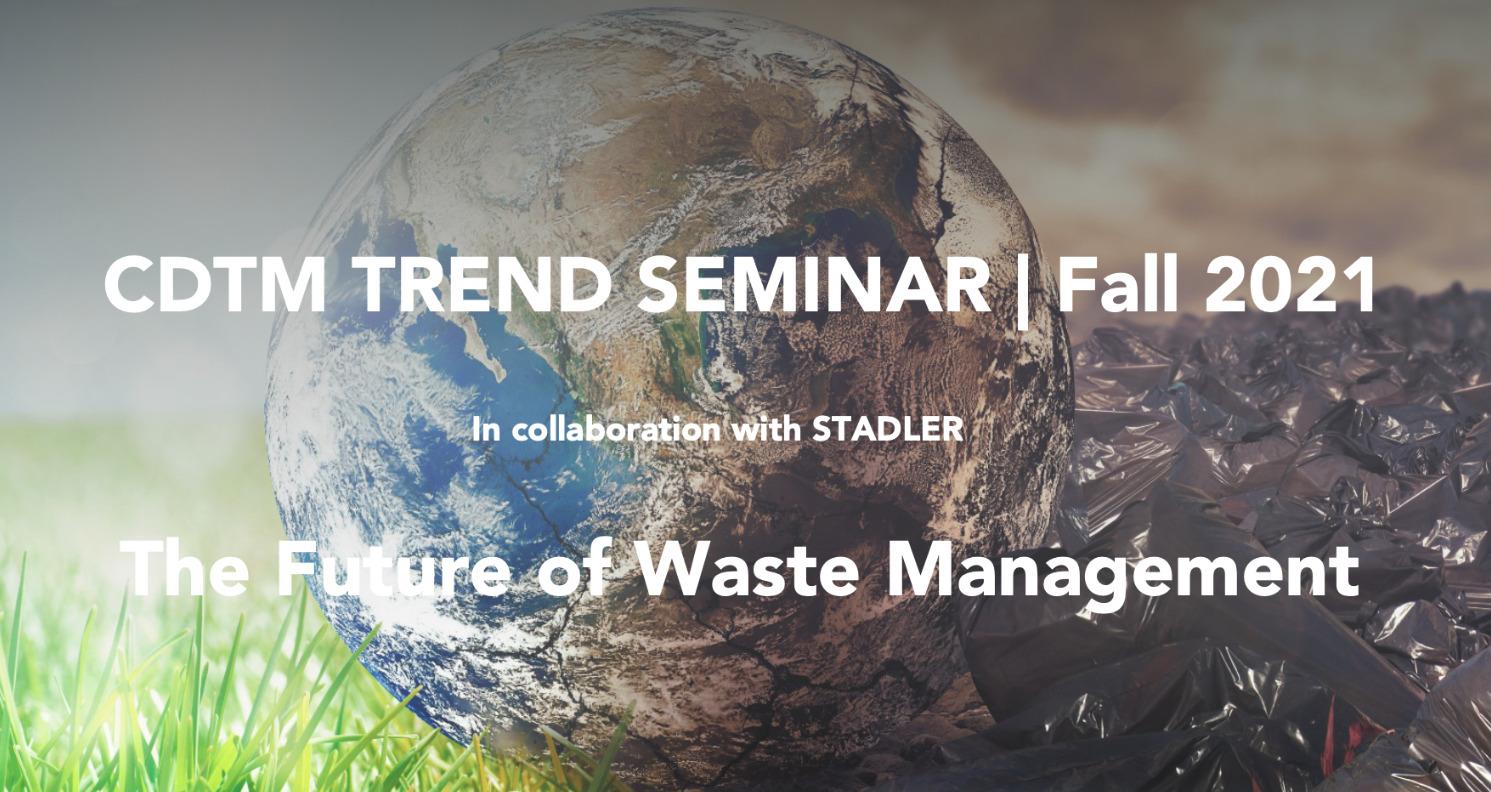The Future of Wastemanagement - Trendseminar Fall2021

25 Trends, 250 ideas, and 5 Business Ideas
When the future' me' will look back on my journey as an Innovator, I am sure that the Trend Seminar on the Future of Wastemanagement will be a core experience on this path. The Trend Seminar gave me the tools and confidence to understand an entirely new industry within a short period of seven weeks.
As usual at the CDTM, the Trend Seminar's problem statement and project partner were kept secret until the very first day. When the topic - "The Future of Waste Management" - was finally revealed, all of us got very excited.
After all, the waste industry is an essential pillar of our modern civilization. An average German citizen produces 633 kgs of household waste per year. This means that just Germany alone produces 50 million tons of household waste per year. All this waste needs to be efficiently collected and processed. If the waste is not cost-effectively processed, it can lead to significant costs. For example, New York City pays 1.5 billion dollars per year alone for waste collection. On the other hand, if not all waste is collected, it can lead to significant health problems. For example, in India, more than eight million people die due to pollution-related diseases each year.
The Trend Seminar started off with the research-oriented Basic Phase. We split into teams of five, and each team researched trends related to their specific topic (Technology, Social and Environmental, Legal & Political, Economic and Business Model Trends). We then used different research methods, including expert interviews, scientific paper reviews, and desktop research, to understand various trends and their associated drivers. This trend research gave us an understanding of how our current world is developing in a particular direction.
Twenty-five trends later, we selected two core and eight secondary drivers behind the trends from the Basic Phase for the next phase, the Scenario Phase. Here, we developed four specific scenarios of how the world could look in twenty years based on the selected drivers. We then used these scenarios during the ideation session to brainstorm more ambitious ideas made for the world in 2041.
This was followed by the last phase, the Ideation Phase. In this phase, again in teams of five, we used the scenarios from the previous phase together with creativity techniques such as TRIZ to come up with approximately 50 ideas per team. Later, using frameworks like the 2x2 prioritization matrix, each team prioritized their top five ideas and agreed on their favorite idea.
Looking back, the Trend Seminar was a fantastic opportunity. It taught us the tools and confidence to dive deep into the industry within a short period. We learned about business concepts like the value chain to understand multiple companies and processes interacting to solve a problem. We also learned about tools like the Relevance Tree, which helps us structure complex problems, and the Morphological Box to help us be more creative.
Last but not least, one of my favorite things about the Trend Seminar was the people. We learned a lot while having fun during the entire journey. Through group work, I experienced how it is to work with my different classmates on a professional basis. On the other hand, through social gatherings in the evening and sports trips on the weekends, I got to know them on a more personal level. I felt that I learned as much outside the classroom through exchanging with other fellow motivated students as I did inside the classroom. Also, considering how interdisciplinary the students at CDTM are, it was a great learning experience to see how students from different backgrounds think and structure problems differently.
If you are interested in becoming an innovator and learning the tools of innovation in a practical, hands-on approach, the CDTM is the best opportunity.
We will soon publish a comprehensive report consolidating all the findings regarding The Future of Waste Management. So stay tuned for it. Meanwhile, follow us on LinkedIn, Instagram, and Facebook to be kept in the loop.
HERE IS A GLIMPSE ON HOW THE TREND SEMINAR LOOKED LIKE:
Good food. Great beer. Awesome people!
Sunny afternoons call for spontaneous lunches:
Building the future of waste management
Demo day & Presentations with our project partner Stadler